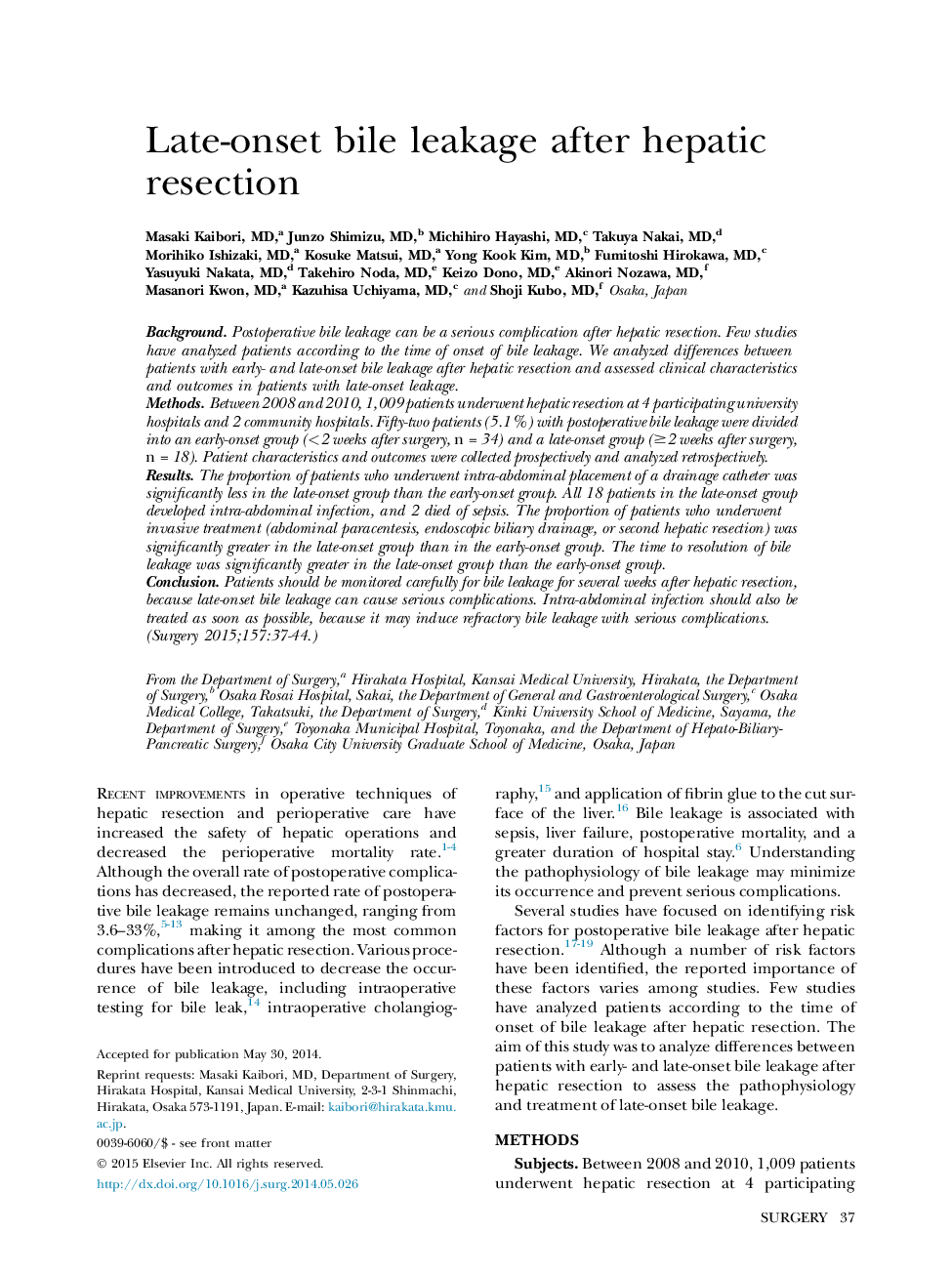| Article ID | Journal | Published Year | Pages | File Type |
|---|---|---|---|---|
| 4307306 | Surgery | 2015 | 8 Pages |
BackgroundPostoperative bile leakage can be a serious complication after hepatic resection. Few studies have analyzed patients according to the time of onset of bile leakage. We analyzed differences between patients with early- and late-onset bile leakage after hepatic resection and assessed clinical characteristics and outcomes in patients with late-onset leakage.MethodsBetween 2008 and 2010, 1,009 patients underwent hepatic resection at 4 participating university hospitals and 2 community hospitals. Fifty-two patients (5.1%) with postoperative bile leakage were divided into an early-onset group (<2 weeks after surgery, n = 34) and a late-onset group (≥2 weeks after surgery, n = 18). Patient characteristics and outcomes were collected prospectively and analyzed retrospectively.ResultsThe proportion of patients who underwent intra-abdominal placement of a drainage catheter was significantly less in the late-onset group than the early-onset group. All 18 patients in the late-onset group developed intra-abdominal infection, and 2 died of sepsis. The proportion of patients who underwent invasive treatment (abdominal paracentesis, endoscopic biliary drainage, or second hepatic resection) was significantly greater in the late-onset group than in the early-onset group. The time to resolution of bile leakage was significantly greater in the late-onset group than the early-onset group.ConclusionPatients should be monitored carefully for bile leakage for several weeks after hepatic resection, because late-onset bile leakage can cause serious complications. Intra-abdominal infection should also be treated as soon as possible, because it may induce refractory bile leakage with serious complications.
